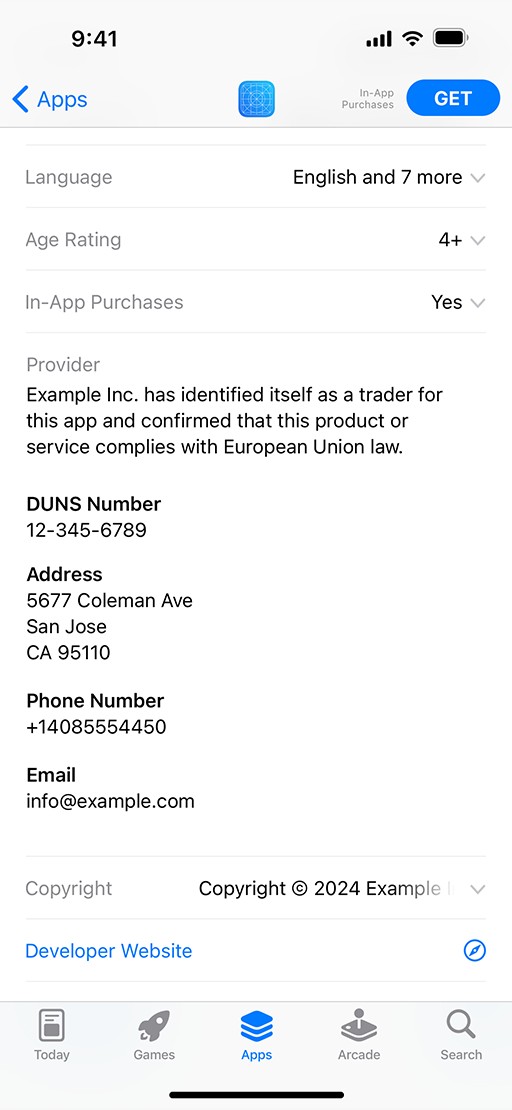
In a significant move affecting app developers targeting the European Union market, Apple has begun enforcing the EU trader requirement. This new policy mandates that developers distributing apps in the EU must now provide their contact information, including address, phone number, and email address, on the EU App Store.
The enforcement comes as part of Apple's compliance with the Digital Services Act (DSA) in the European Union. Under this act, Apple is obligated to verify and display contact information for all "traders" distributing apps on the App Store within the EU. The definition of a trader extends to any developer monetizing their app, whether through upfront purchase prices or in-app purchases, regardless of the size of their operation.
As of now, developers must submit this trader information via App Store Connect before they can update their existing apps or submit new ones for review. This contact information will be publicly displayed on each developer's App Store page, raising potential privacy concerns for some developers.
The implementation of this policy has immediate consequences. App updates can no longer be submitted without providing trader information. Looking ahead, Apple has set a deadline of February 17, 2025, after which any apps lacking verified trader status will be removed from the EU App Store until the required information is provided and verified.
This new requirement poses challenges, particularly for independent developers and small companies. Many may not have dedicated business addresses and phone numbers, and could be hesitant to share personal contact details publicly.
Apple had previously alerted developers about this impending change earlier in the year. The requirement applies to app distribution across all 27 EU member states, with the contact information being displayed on the App Store product page for apps available in these territories.
While this move aims to enhance transparency and accountability in the app marketplace, it also highlights the increasing regulatory pressures faced by tech companies operating in the EU. As the digital landscape continues to evolve, developers and platform providers alike must adapt to new compliance requirements, balancing user protection with developer privacy concerns.